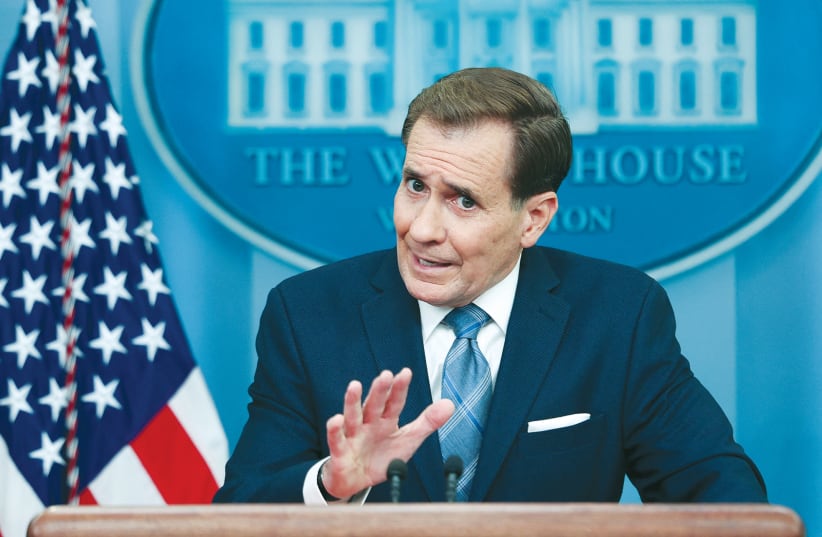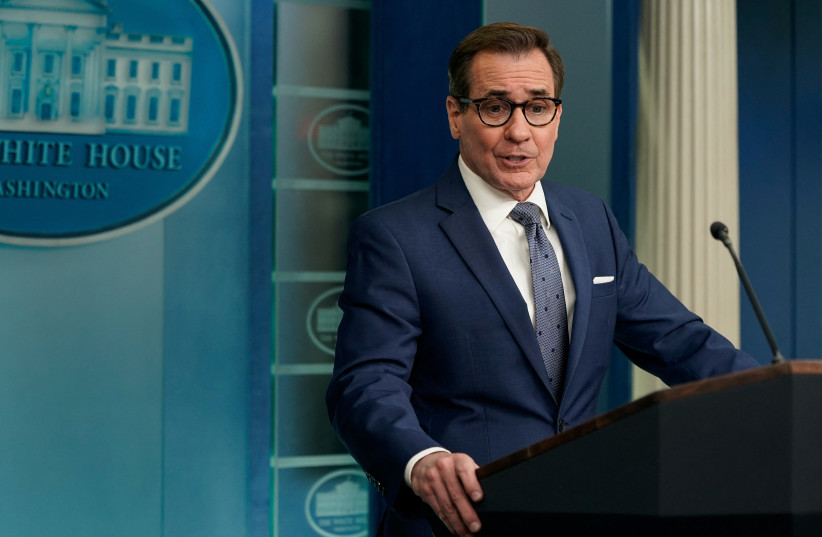The White House attempted to clear up its messaging on Friday over Israel's operation of Rafah saying it supports Israel's right to eliminate the threat of Hamas but will not support an invasion smashing into Rafah with multiple divisions of forces in an indiscriminate way.
According to National Security Communications Advisor John Kirby, Israel's attacks in Rafah over the past 24 hours doesn't indicate a major ground operation.
In a call with reporters on Friday, Kirby said the operation appears to be localized near the Rafah crossing and largely with the forces Israel had put in there at the beginning.
Every day the crossing is not usable for humanitarian assistance there's going to be more suffering, and Kirby said that's of "deep concern" to the White House.
Kirby said the White House is urging the Israelis to be as "careful, precise and discriminant" as they can be.
According to Kirby, the White House never told Israel they can't operate in Rafah, but the way they do it matters.
Israel will continue to have the White House's support as Hamas continues to represent a "truly genocidal threat" against the Israeli people, Kirby said.
"But we believe there's better ways to eliminate that threat," he added. "More discreet, more targeted, more careful ways to do it."
Kirby said there's not going to be a specific trigger that will cause Biden to withhold future arms shipments and that the Israelis know what the White House will and won't support.
UN vote
The White House continues to believe in the promise of a two-state solution and independent state for the Palestinian people built through direct negotiations with the parties and not through a UN vote, Kirby said of Friday morning's vote in the UN against upgrading Palestine's status as a non-member observer state.
Hostage negotiations
Kirby said it's "deeply regrettable" that the in-person ceasefire negotiations have concluded, though the US is working hard to try to "keep both sides engaged" in continuing the discussion to work on the actual text of the deal.
"We still believe that a deal is possible," Kirby said.
He added the gaps remaining can be surmounted, but it's going to require leadership, some more courage and the continued ability to compromise and negotiate in good faith.
"We're not giving up on that," Kirby said.
Kirby defended CIA Director Bill Burns as lead negotiator, saying he has a "broad range and depth of experience" in diplomacy with a "deep Rolodex" of relationships around the world which are proving important as he tries to get the hostages home.
He added it's been "inspiring" to see the way Burns is working with National Security Advisor Jake Sullivan and Middle East Coordinator Brett McGurk.

